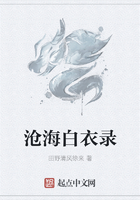How many maternal tears did his condition draw from the Queen, already overwhelmed with apprehensions respecting the state of the kingdom! Her grief was enhanced by petty intrigues, which, when frequently renewed, became intolerable. An open quarrel between the families and friends of the Duc Harcourt, the Dauphin's governor, and those of the Duchesse de Polignac, his governess, added greatly to the Queen's affliction. The young Prince showed a strong dislike to the Duchesse de Polignac, who attributed it either to the Duc or the Duchesse d'Harcourt, and came to make her complaints respecting it to the Queen. The Dauphin twice sent her out of his room, saying to her, with that maturity of manner which long illness always gives to children: "Go out, Duchess; you are so fond of using perfumes, and they always make me ill;" and yet she never used any. The Queen perceived, also, that his prejudices against her friend extended to herself; her son would no longer speak in her presence. She knew that he had become fond of sweetmeats, and offered him some marshmallow and jujube lozenges. The under-governors and the first valet de chambre requested her not to give the Dauphin anything, as he was to receive no food of any kind without the consent of the faculty.
I forbear to describe the wound this prohibition inflicted upon the Queen; she felt it the more deeply because she was aware it was unjustly believed she gave a decided preference to the Duc de Normandie, whose ruddy health and amiability did, in truth, form a striking contrast to the languid look and melancholy disposition of his elder brother. She even suspected that a plot had for some time existed to deprive her of the affection of a child whom she loved as a good and tender mother ought. Previous to the audience granted by the King on the 10th August, 1788, to the envoy of the Sultan Tippoo Saib, she had begged the Duc d'Harcourt to divert the Dauphin, whose deformity was already apparent, from his, intention to be present at that ceremony, being unwilling to expose him to the gaze of the crowd of inquisitive Parisians who would be in the gallery. Notwithstanding this injunction, the Dauphin was suffered to write to his mother, requesting her permission to be present at the audience. The Queen was obliged to refuse him, and warmly reproached the governor, who merely answered that he could not oppose the wishes of a sick child. A year before the death of the Dauphin the Queen lost the Princesse Sophie; this was, as the Queen said, the first of a series of misfortunes.
NOTE: As Madame Campan has stated in the foregoing pages that the money to foment sedition was furnished from English sources, the decree of the Convention of August, 1793, maybe quoted as illustrative of the entente cordiale alleged to exist between the insurrectionary Government and its friends across the Channel! The endeavours made by the English Government to save the unfortunate King are well known. The motives prompting the conduct of the Duc d'Orleans are equally well known.
Art. i. The National Convention denounces the British Government to Europe and the English nation.
Art. ii. Every Frenchman that shall place his money in the English funds shall be declared a traitor to his country.
Art. iii. Every Frenchman who has money in the English funds or those of any other Power with whom France is at war shall be obliged to declare the same.
Art. iv. All foreigners, subjects of the Powers now at war with France, particularly the English, shall be arrested, and seals put upon their papers.
Art. v. The barriers of Paris shall be instantly shut.
Art. vi. All good citizens shall be required in the name of the country to search for the foreigners concerned in any plot denounced.
Art. vii. Three millions shall be at the disposal of the Minister at War to facilitate the march of the garrison of Mentz to La Vendee.
Art. viii. The Minister at War shall send to the army on the coast of Rochelle all the combustible materials necessary to set fire to the forests and underwood of La Vendee.
Art. ix. The women, the children, and old men shall be conducted to the interior parts of the country.
Art. x. The property of the rebels shall be confiscated for the benefit of the Republic.
Art. xi. A camp shall be formed without delay between Paris and the Northern army.
Art. xii. All the family of the Capets shall be banished from the French territory, those excepted who are under the sword of the law, and the offspring of Louis Capet, who shall both remain in the Temple.
Art. xiii. Marie Antoinette shall be delivered over to the Revolutionary Tribunal, and shall be immediately conducted to the prison of the Conciergerie. Louise Elisabeth shall remain in the Temple till after the judgment of Marie Antoinette.
Art. xiv. All the tombs of the Kings which are at St. Denis and in the departments shall be destroyed on August the 10th.
Art. xv. The present decree shall be despatched by extraordinary couriers to all the departments.
End of The Memoirs of Marie Antoinette, V4 by Madame Campan MEMOIRS OF THE COURT OF MARIE ANTOINETTE, QUEEN OF FRANCE Being the Historic Memoirs of Madam Campan, First Lady in Waiting to the Queen BOOK 5.
HISTORIC COURT MEMOIRS.
MARIE ANTOINETTE.















